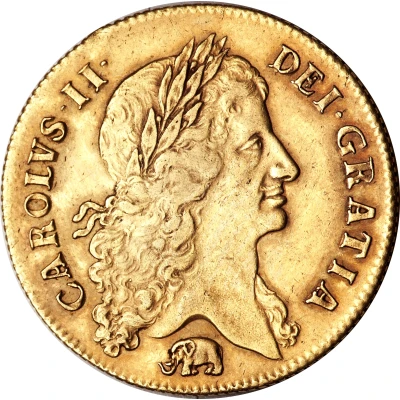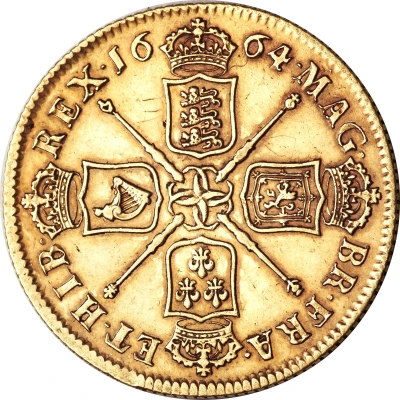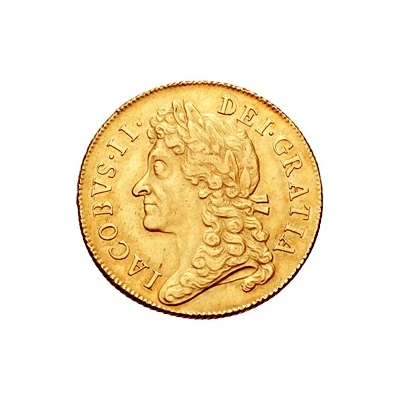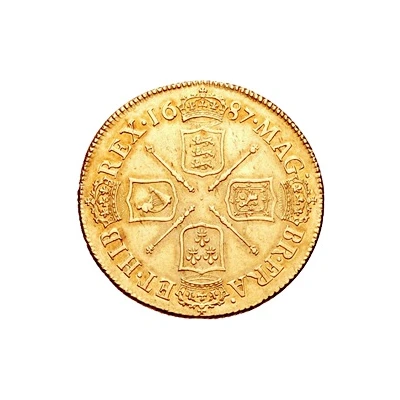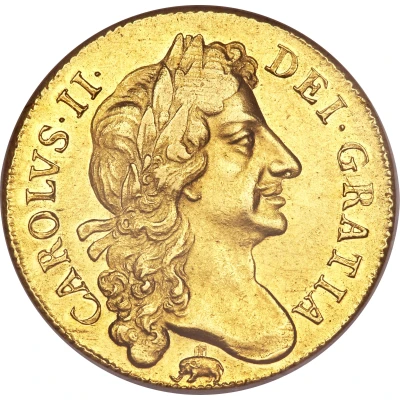
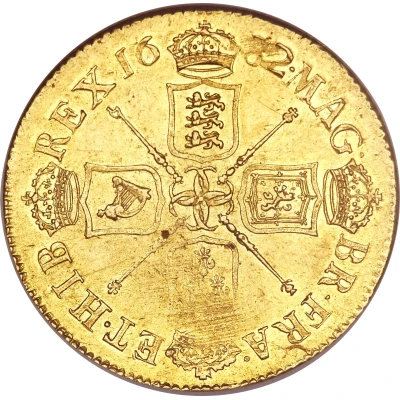

© Heritage Auctions
2 Guineas - Charles II 2nd bust
| Gold (.917) | 16.77 g | - |
| Issuer | England (United Kingdom, British Overseas Territories and Crown Dependencies) |
|---|---|
| King | Charles II (1660-1685) |
| Type | Standard circulation coin |
| Years | 1675-1684 |
| Value | 2 Guineas |
| Currency | Pound sterling (1158-1970) |
| Composition | Gold (.917) |
| Weight | 16.77 g |
| Shape | Round |
| Technique | Milled |
| Orientation | Coin alignment ↑↓ |
| Demonetized | Yes |
| Updated | 2024-10-09 |
| Numista | N#12943 |
|---|---|
| Rarity index | 97% |
Reverse
Crowned cruciform shields around interlinked C's with sceptres bearing national emblems in angles, divided date above, legend around.
Script: Latin
Lettering: MAG· BR·FRA· ET·HIB· REX·16 82·
Translation: King of Great Britain France and Ireland
Engraver: John Roettier
Comment
Obverse die varieties:Sp#3335, KM#443.1 (1675-84) Second laureate bust, rounded truncation;
Sp#3336, KM#443.2 (1676-84) Similar, elephant and castle below bust;
Sp#3337, KM#443.3 (1678 only) Similar, elephant below bust.
These coins were struck at 22¼ to the pound troy, giving a standard weight of 48/89 troy ounce (258.9 grains).
Interesting fact
One interesting fact about the 2 Guineas - Charles II (2nd bust) coin is that it was used as a means of payment for the British East India Company's transactions in India. The coin was first introduced in 1675 and was widely used by the company until the early 18th century. Its value was equivalent to 21 shillings, making it a significant denomination for trade and commerce during that time.
